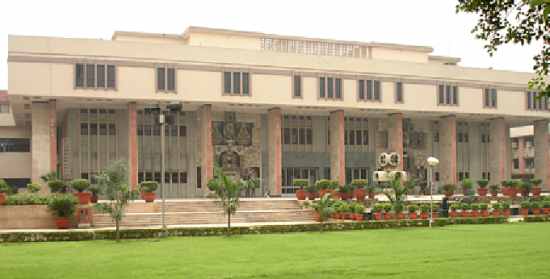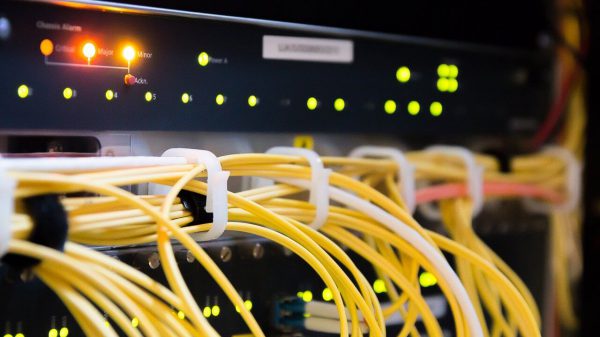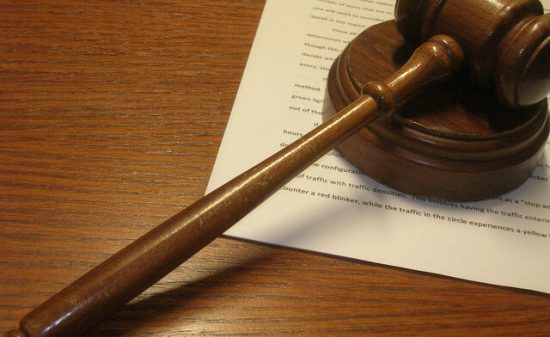The Information Technology Rules 2021 enable the government to virtually dictate content to digital news portals, and squarely violate media freedom, stated a plea filed by media outlet The Quint in the Delhi High Court. The petition challenges the constitutionality of the Information Technology (Intermediary Guidelines and Digital Media Ethics Code) Rules. 2021, which was notified last month.
The Delhi High Court on Friday issued notice on the petition, tagging it to another similar petition filed earlier this month by The Foundation for Independent Journalism. The court, however, did not agree to provide interim protection against coercive action by the government — as the Kerala High Court had done for LiveLaw — but said it would hear an application immediately if the need arose.
The IT Rules 2021 prescribe, among other things, a three-tier regulatory structure for digital news media organisations. The Quint’s is the fourth such petition against the Rules in recent weeks, all of whom have argued that the Rules are violative of the freedom of speech and amount of excessive delegation of legislation by rule-making.
“No reading of the rule-making power will allow for such a regulatory regime for digital news media entities without express statutory sanction, for that will run the danger of adversely affecting Fundamental Rights, especially the right to free speech under Article 19(1)(a). Given such grave consequences, rule-making power has to be read strictly,” the petition notes.
For more context on how the IT Rules propose to regulate digital media and intermediaries, read our summaries on them — Digital news; intermediaries; OTT streaming services.
Arguments made in the petition
- IT Act not meant for news regulation: The IT Act was introduced to facilitate, recognise and regulate electronics transactions and communications. The entities of which the Act took cognizance were all generic users of information technology. “Significantly, news media was neither recognised as a separate entity, nor news and current affairs as distinct content. Ethical regulation of the news media was entirely extraneous to the Act,” the petition notes.
“Regulation of any one category of business or practice is not contemplated under the Act except insofar as it relates to “intermediaries” […] Any attempt to smuggle in such regulatory provisions (substantive or procedural) through subordinate, delegated legislation would clearly be outside the scope of the Act.” — The Quint’s petition
- Code of Ethics is vague: Digital news and current affairs outlets are supposed to subscribe to a Code of Ethics, which encompass existing journalistic guidelines issued under the Press Council Act. These guidelines include “vague and subjective standards” such as “half-truths”, “good taste”, “decency” and so on. The petition also notes that Section 66-A of the IT Act, was struck down by the Supreme Court in the Shreya Singhal case on ground of vagueness.
“It is pertinent to note that the Norms of Journalistic Conduct under the Press Council Act and the Programme Code under the Cable TV Act are extremely broad in their sweep, covering within their ambit things like ‘good taste’ and ‘decency’, which by their nature are subjective” — The Quint’s petition
- Publishers are not intermediaries, and can’t be regulated by IT Act: The Rules source their power from Section 79 of the Act, which is about intermediaries. And the definition of “publishers” in the Rules make it clear that they are distinct from intermediaries. “Note that a publisher is not even defined or dealt with in the IT Act,” it says.
- Goes beyond Section 69A too: Similarly, Section 69A — which corresponds to blocking orders to intermediaries from the government — also doesn’t contemplate regulating news media. “Most of the matters in the Code of Ethics are beyond Section 69A even otherwise,” it notes.
- Incorrect to say digital news is unregulated: “The Petitioner seeks no safe harbour and is not entitled to any safe harbour provisions for the content that it hosts and publishes and it takes full responsibility for the content it publishes,” says the petition. It also notes that in countries like the UK and Australia, online news are classified alongside the print medium by a voluntary body or peers, “without any role or space to the State”.
- Oversight mechanism gives government too much power: As part of the regulatory mechanism, the self-regulating body — subject to government approval — has the power to censure or make publishers apologise. The inter-departmental committee, headed by a government official, can take up complaints made by the self-regulatory body or even directly by the I&B ministry. This committee has the power to recommend to the ministry “draconian measures”, which are subject only to the approval of the I&B secretary.
“It must be noted that the regulatory mechanism as provided for bythe Impugned Rules is no ‘self-regulatory’ mechanism with moral authority, but is one bound at every stage by a Government diktat and subject to the Government’s final orders – digital news portals remain vulnerable to the normal civil and criminal liabilities while also being at the mercy of this so called ‘self-regulatory’ mechanism where the final word shall be that of the Central Government.” — The Quint’s petition
Also read:
- Petition Against IT Rules 2021: Grounds For Content Removal Too Broad, Unconstitutional
- Brief: Arguments made by LiveLaw in plea challenging Information Technology Rules 2021
- Brief: Arguments Made By LiveLaw In Plea Challenging Information Technology Rules 2021
- Can The Indian Government Use Section 69 Of IT Act To Censor Digital Media?














